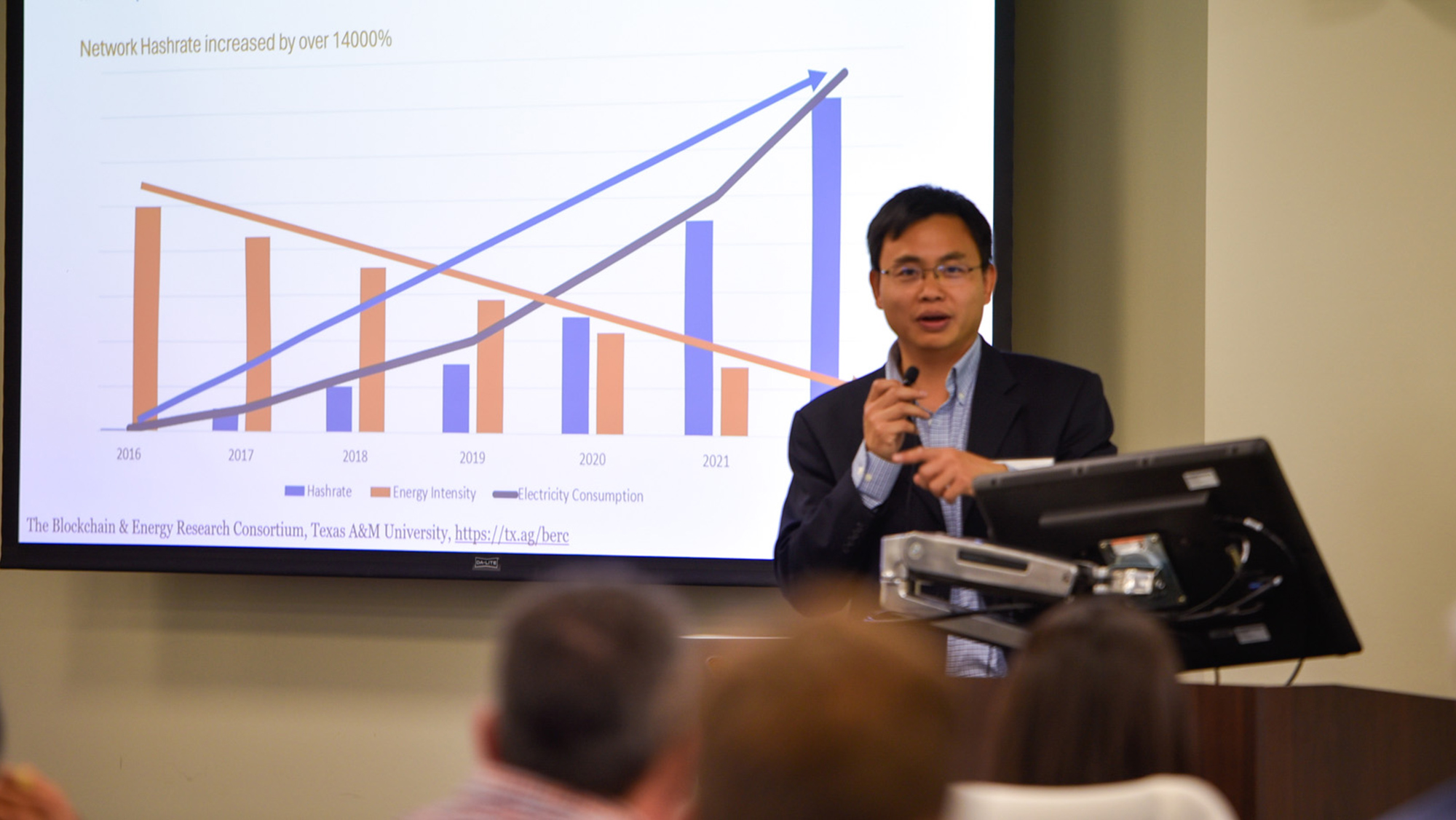
Texas A&M University once again became the nexus of groundbreaking discussions on blockchain technology and its integration with the energy sector during the Blockchain and Energy Research Consortium (BERC) workshop held in the Wisenbaker Engineering Building on April 30.
BERC is a collaborative and cross-disciplinary effort between Texas A&M experts and industry partners to provide a platform for research and entrepreneurship and to connect people across various areas of expertise.
The workshop focused on demand side flexibility and detailed how large computing loads, such as those from blockchain mining operations and data centers, can help stabilize the grid by adjusting their energy consumption when the grid is stressed. For example, if the grid is experiencing a high electricity demand, large computing loads might decrease their power usage, and if there is an excess supply, they might increase it.
The workshop kicked off with a talk on demand flexibility for the Electric Reliability Council of Texas (ERCOT). ERCOT covers most of Texas and provides electricity to more than 27 million Texas customers. The discussion focused on technology and policy and was led by Dongjoo Kim, a graduate research assistant, and Arun Karngala, a researcher.
This was followed by a tutorial on demand response from computing loads: when they adjust their power consumption to support the efficiency and stability of the power grid. The speakers included graduate research assistants Ali Menati, Yuting Cai, and Hasan Ibrahim, along with Agee Springer, large flexible load interconnection manager at ERCOT.
The startup and entrepreneurship panel included Gideon O. Powell, president and COO of Cholla Petroleum, Matt Lohstroh, CEO and co-founder of Giga Energy, and Paul Deere, an associate professor of practice in the Department of Multidisicplinary Engineering.
Dr. Korok Ray, an associate professor from the Mays Business School, moderated the panel driving the conversation on entrepreneurship opportunities in the nascent space of blockchain and energy.
Additional workshop speakers from Department of Electrical and Computer Engineering included Dr. Costas Georghiades, interim department head, Dr. Le Xie, professor, and Dr. Prasad Enjeti, professor.